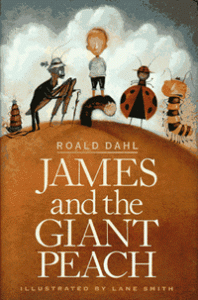My goal for this post is to discuss appropriate ways to address globalization in the writing classroom. On the surface, it may seem like only small pieces of globalization enter our classroom walls–via students from other countries, electronic devices that were outsourced to other countries, and perhaps the occasional student paper on NAFTA or the psychological implications of social media. But if our mission as college writing instructors is to help our students gain the tools they need to actively participate in their future discourse communities, then we need to tackle globalization–right along with technology and media literacy–head on in the classroom. Continue reading social-objective-driven global communication
“Boundary Work”: Building Bridges, Not Trapdoors
This week’s readings forced us to confront this question from Doreen Starke-Meyerring (2005): What does it mean to be literate in a globalizing world? Surely, this is a significant question, and one that requires our attention. Starke-Meyerring (2005, p.493-494) proposes the following three strategies to engage with the literacy demands of global communication:
- investing in curricula rooted in a global worldview
- engaging in “boundary work” that encourages inquiry, reflection, analysis, and negotiation
- developing more diverse and open learning environments
These present huge, complicated expectations for us in our work as teachers of writing. For some, the response to these demands is clear. For others, the answer continues to be shaped gradually.
Continue reading “Boundary Work”: Building Bridges, Not Trapdoors
Children’s Literature Makes All the Difference in the World
“My dear young fellow,” the Old-Green-Grasshopper said gently, “there are a whole lot of things in this world of ours you haven’t started wondering about yet.”
—Roald Dahl, James and the Giant Peach
 Thankfully, we don’t really live on a peach, but the grasshopper does have a point. And children’s literature is the perfect platform to explore and wonder about the (actual) world we all share.
Thankfully, we don’t really live on a peach, but the grasshopper does have a point. And children’s literature is the perfect platform to explore and wonder about the (actual) world we all share.Continue reading Children’s Literature Makes All the Difference in the World
Let’s Go For a Spin
There is hardly an industry out there that hasn’t become multinational on some level. Even local businesses rely on the intricate network of industry participants to operate. In this view, the automotive industry is the rule because every make and model draws from the same international manufacturing well. I’m not only speaking about the components that are so popular to complain about (“This cheap garbage made in [any third world country]!”), and it isn’t only production that has abolished borders. Cars and trucks sold in the US are made in numerous other countries, even the domestic brands. In the same vein, domestic brand vehicles are marketed quite heavily overseas. Corporate capital has long ignored national borders (as noted quite regularly by Noam Chomsky) and so it should come as no surprise that the myth of the purely “American company” is steadily fading into memory. What this means is that employees in the auto industry are increasingly being confronted with foreign coworkers, and this steadily transforming workplace requires a significant paradigm shift. Continue reading Let’s Go For a Spin
Today the Classroom, Tomorrow the World
 It is our students’ oyster. They have it in their hands. Which ever saying one chooses to use, our current students may one day change the world. I tell my students they have time to develop their dreams and find what they love so that they can institute change. For some, their dreams include stability and benefits; for others, their dreams are composed of making changes that can cross borders and improve lives across the hemispheres. It becomes my job to show them how they can prepare during their junior year of AVID.
It is our students’ oyster. They have it in their hands. Which ever saying one chooses to use, our current students may one day change the world. I tell my students they have time to develop their dreams and find what they love so that they can institute change. For some, their dreams include stability and benefits; for others, their dreams are composed of making changes that can cross borders and improve lives across the hemispheres. It becomes my job to show them how they can prepare during their junior year of AVID.
This blog has been inundated with all things AVID, but this is only because I believe that college is for all students and student loans are not the only way to achieve a degree. With that being said, our AVID elective team has a great deal of curriculum dealing with critically reading, effectively writing, collaboration, inquiry, and organization. However, some of our hidden curriculum deals with how students communicate and interact in many discourses. Continue reading Today the Classroom, Tomorrow the World
International Journalism—Newspaper & Media
There are many international newspaper periodicals that have already taken on those role of globalization. In fact, two that are published in the United States are in the top ten international new ranked according to circulation, The Wall Street Journal and USA Today. We are all, as Americans, familiar with these titles but so is the rest of the world. Japan holds many of the top ranking circulators, as well.
Any newspaper or journalist knows that when reporting on anything, it is best to stay unbiased. Their job is to report the facts and let the reader come to their own conclusion based on the beliefs or knowledge about situations they already have. It is not always easy, but it is always necessary. As a global media, this is all the more important. When there are other people in other cultures with other laws and belief systems reading the same paper as people from complete opposite aspects, then it is necessary to be unbiased in order to stay sensitive to every reader’s needs. As an American journalist, the assignment might be to write a story on conflicts in the Middle East. Whatever the topic, it may be hard for a person, with real human emotion, to not laud American’s for their work or even inadvertently offend Middle Eastern government with even a simple comment in the article. They have to be aware that people in the Middle East may read that very same article, as well, and we cannot cater against one nationality for another no matter where the writer is coming from. In fact, America is so extremely diverse in itself that different cultures can be effected right within our own borders. Continue reading International Journalism—Newspaper & Media
Global Communicators Whether We Like It or Not
As a teacher, my audience is most often my students. Until now, I have rarely taken into consideration global communication when writing my lesson plans and assignments. However, considering the world my students are entering into, global communication is something that many of them are going to have to participate in. Part of my job is to prepare my 12th graders for the world beyond high school. As they get older, many jobs look for skilled communicators, and much of communication happens digitally in today’s society. As Dorreen Starke-Meyerring says, the internet is an “inherently global” network (487). Therefore, preparing my students to be global communicators should be part of my job and a skill which I consider when teaching my students how to listen, speak, read, and write.
Proving to students through job ads that effective communication is a necessary skill makes the necessity of the skills they are (hopefully) going to learn or continue to shape throughout the year undeniable. Professionally, Starke-Meyerring states that “They need to be able to collaborate effectively and ethically in global networks, using global network technologies to build trusting relationships and partnerships” (476). There is worth in these skills, and we can prove that to students through this quote and back it up with listed qualifications for job opportunities. How do we do approach this, though?
Continue reading Global Communicators Whether We Like It or Not
A New Age of Writing

“We need to know the destination–if not in a precise way, then at least a generalized way. Before we actually translate anything into reality we must be able to dream about it.”
-Muhammad Yunus
In my world, in my sphere of influence, the destination is all I have. I am not a writer. I am a teacher. If I wish to have any success, if I wish to have any a power or influence, I have to sell my students on their potential; I have to help them see the end–sort of a transpurposed (yes, I made that word up) photograph–they have to see a snap shot of who they could be in the future. In the end I have to help my students believe the dream I have for them and help them have that same dream. Continue reading A New Age of Writing
One Size Does Not Fit All
We live in a diverse world made up of different ethnicities, religions, traditions, interests and preferences. So, how do we tailor our messaging to appeal to a diverse audience in the business world? Whether communicating globally, or even one localized audience with diverse backgrounds, we have to be cognizant of our audience members. Because of the diversity of our world, it is impossible to please everyone and one size definitely does not fit all. However, there are ways that writers can develop their communications to better appeal to the majority of our diverse audience.
The first thing writers need to understand about communicating cross-globally is the concept of globalization. As Doreen Startke-Meyerring describes it, “Globalization… is the web of contacts, impacts, and connections now engulfing the basic institutions of the world in virtually every dimension of activity: demographic, economic, technological, environmental and political”. Our points of contact with anyone else outside of our background can be considered an aspect of globalization. Continue reading One Size Does Not Fit All
Globalization and the Travel Industry
“The world is changing in such unpredictable ways and will continue to become more and more unpredictable as we move through this century. All we can say with a fair amount of certainty is that the speed of change will become faster and faster—it is very unlikely to slow down” (Yunus 248).
We all know a lot of things have changed in the world in the past several decades and the travel industry is no exception. The internet brought on a new type of booking where consumers could easily cut out the middle man and go directly to the source themselves. Add into this the fact that airlines stopped paying commissions, which caused travel agents to start charging fees, and suddenly everyone has become a travel expert. If you can point and click, you can book travel. And that was before the world of tablets, smart phones and Apps. Continue reading Globalization and the Travel Industry


![globe [Converted]](https://professionalcommunities.files.wordpress.com/2014/10/globeforweb.jpg?w=150&h=150)
